

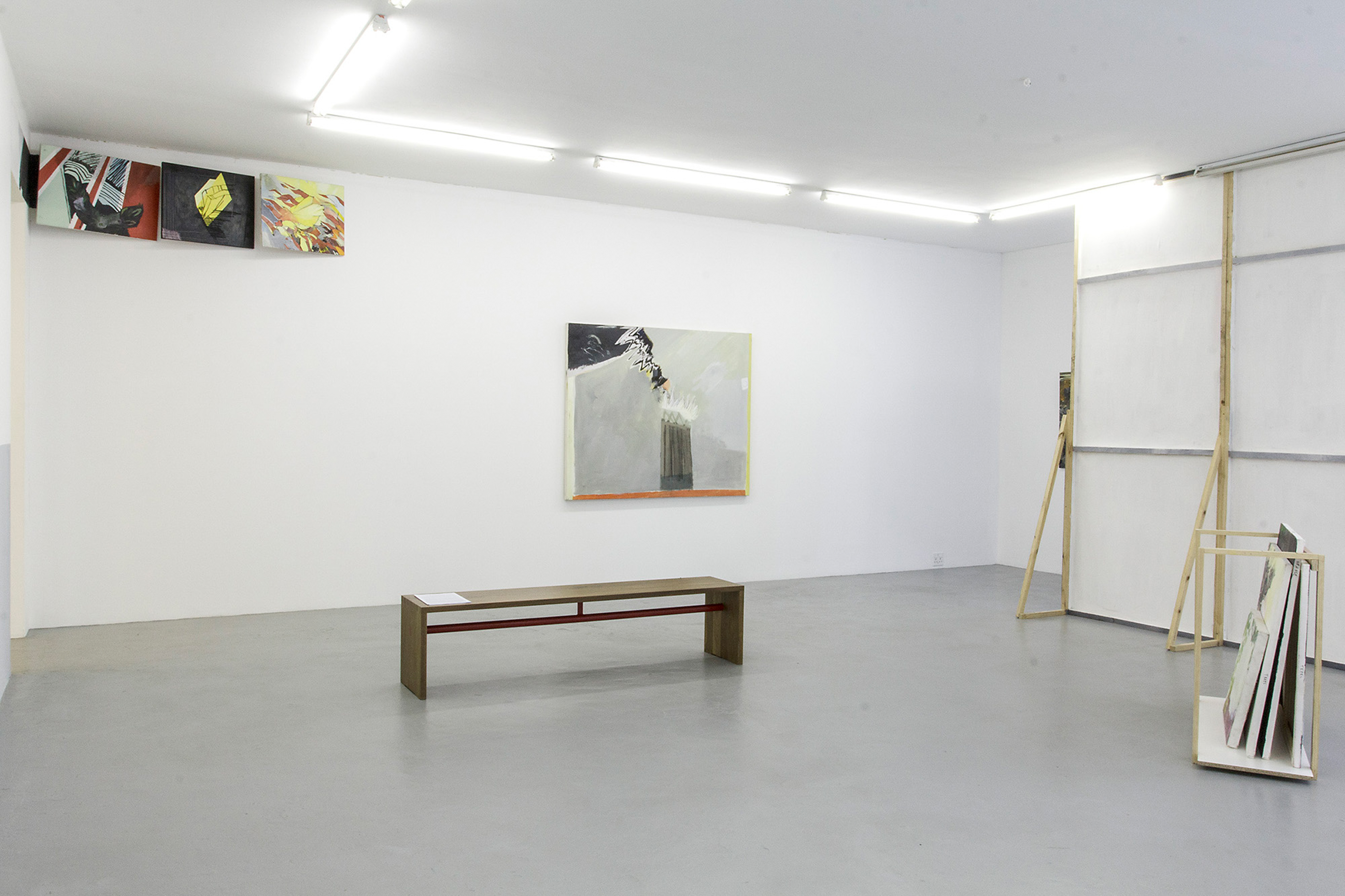
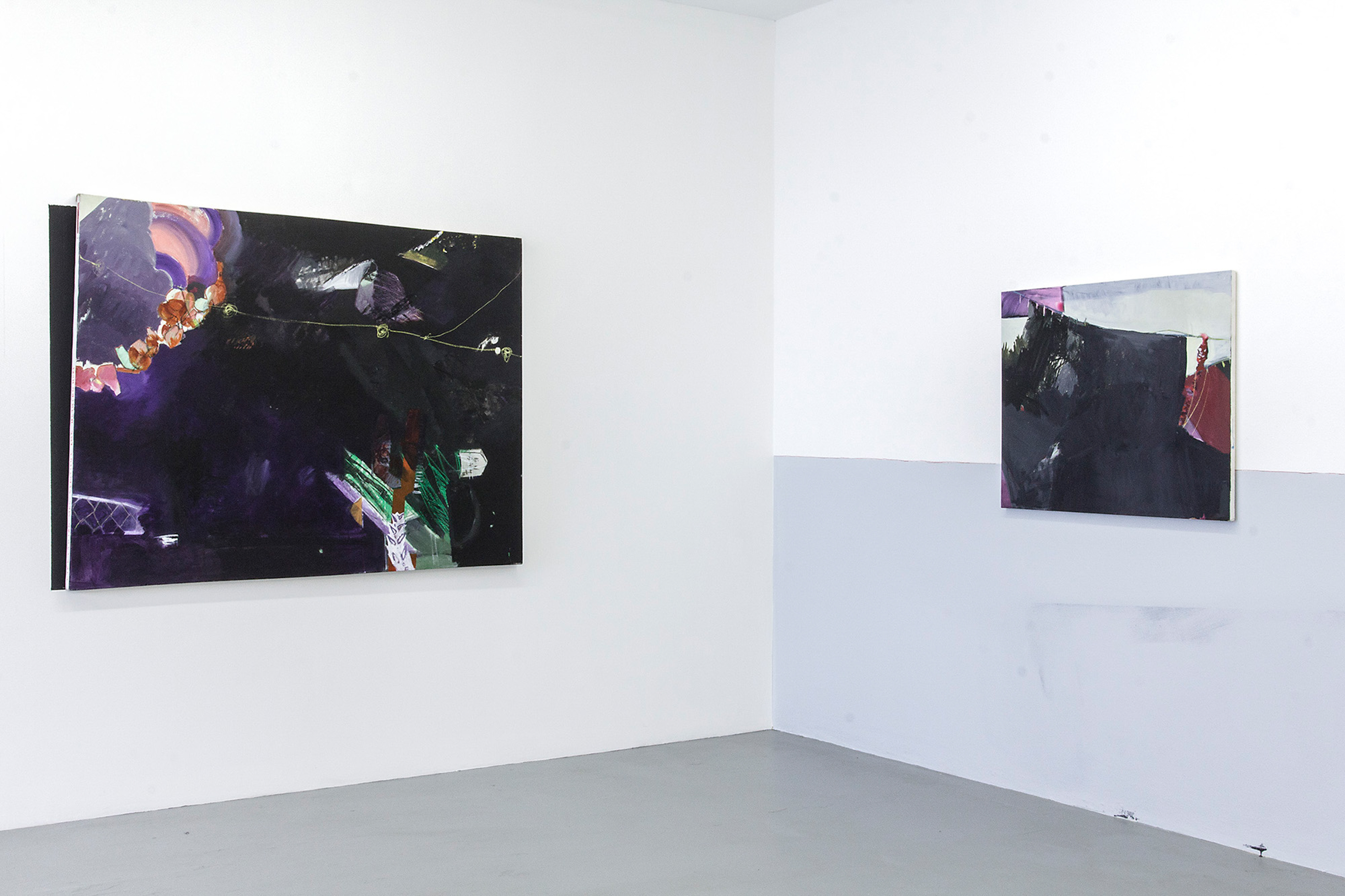

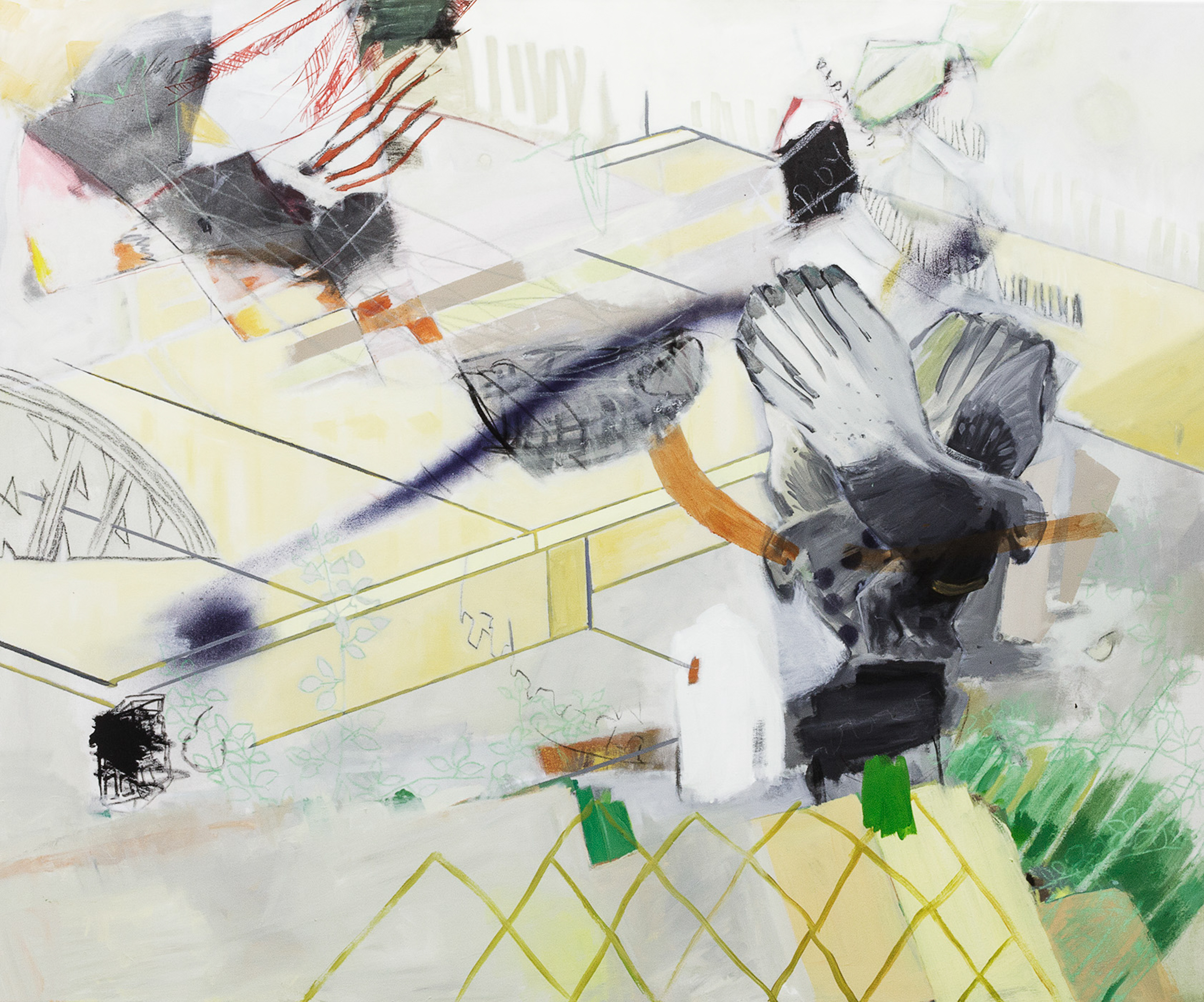
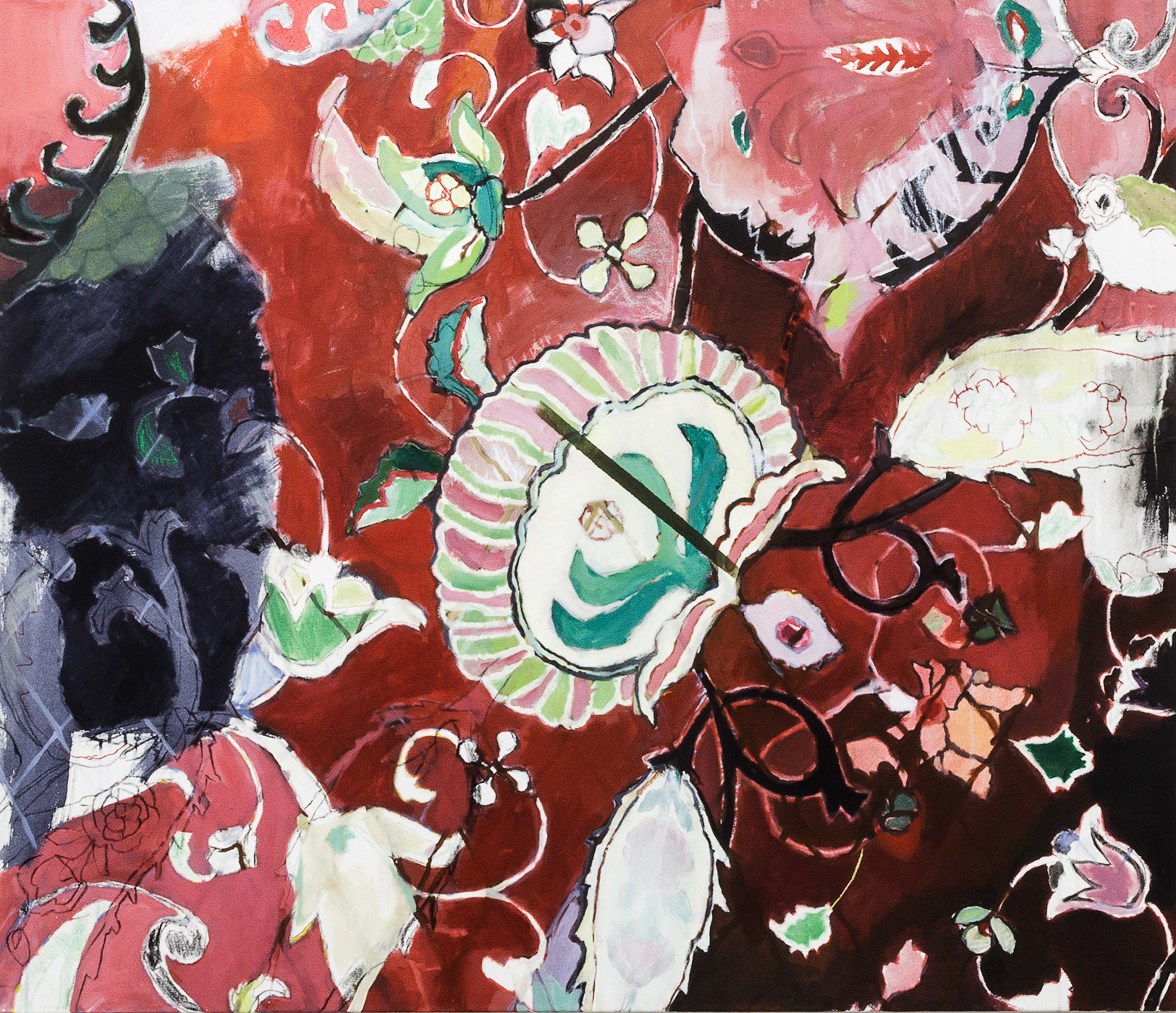
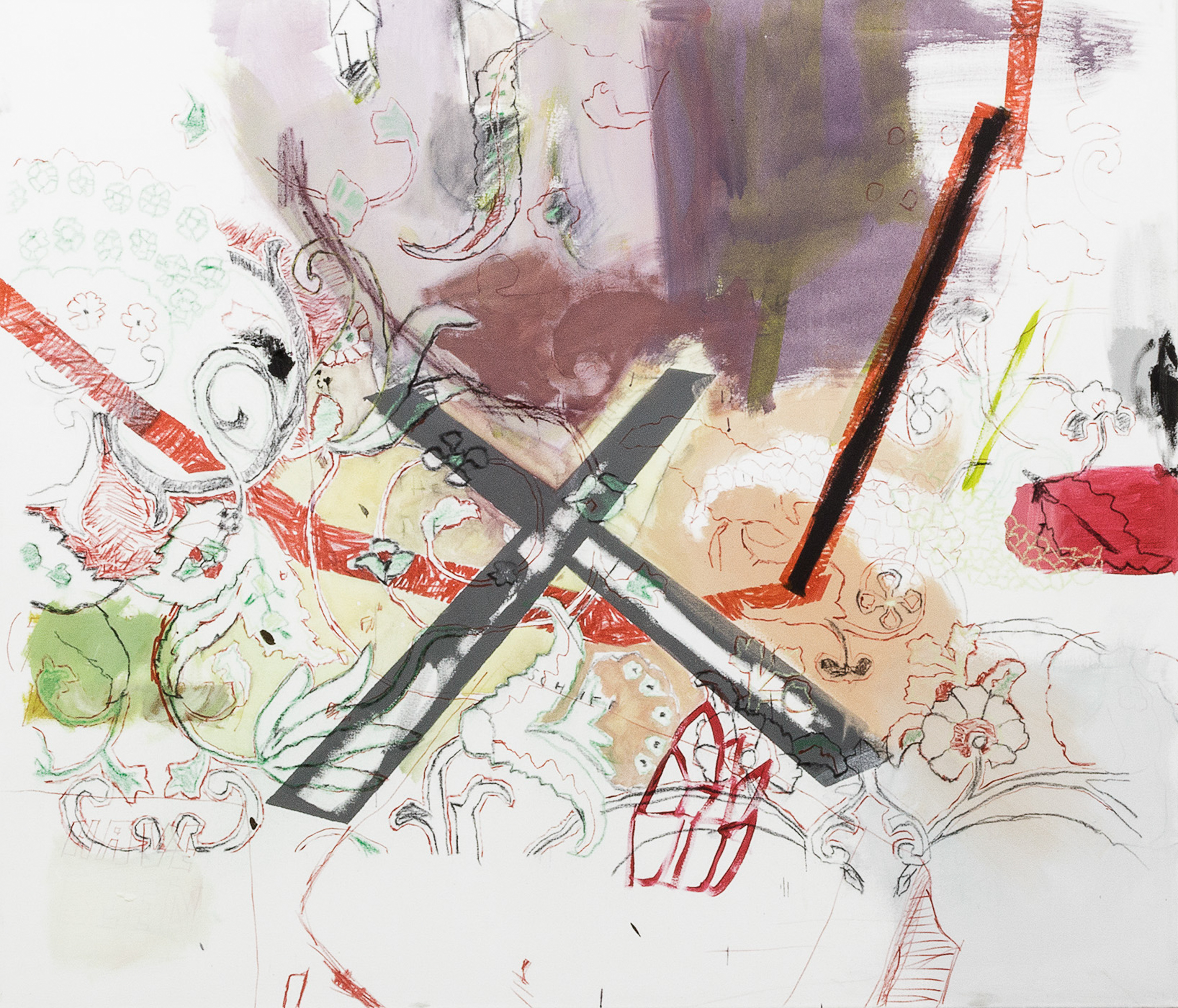



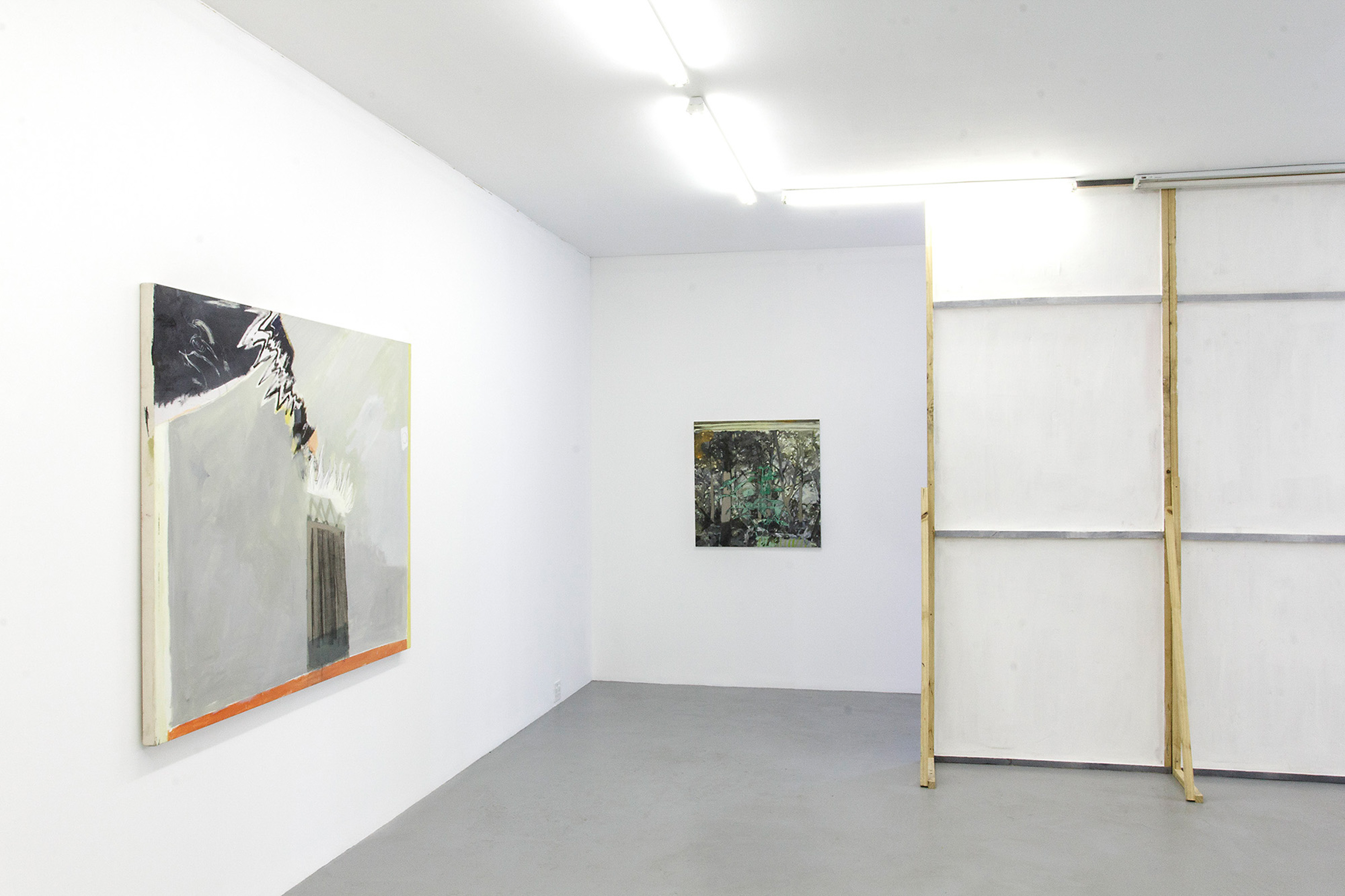
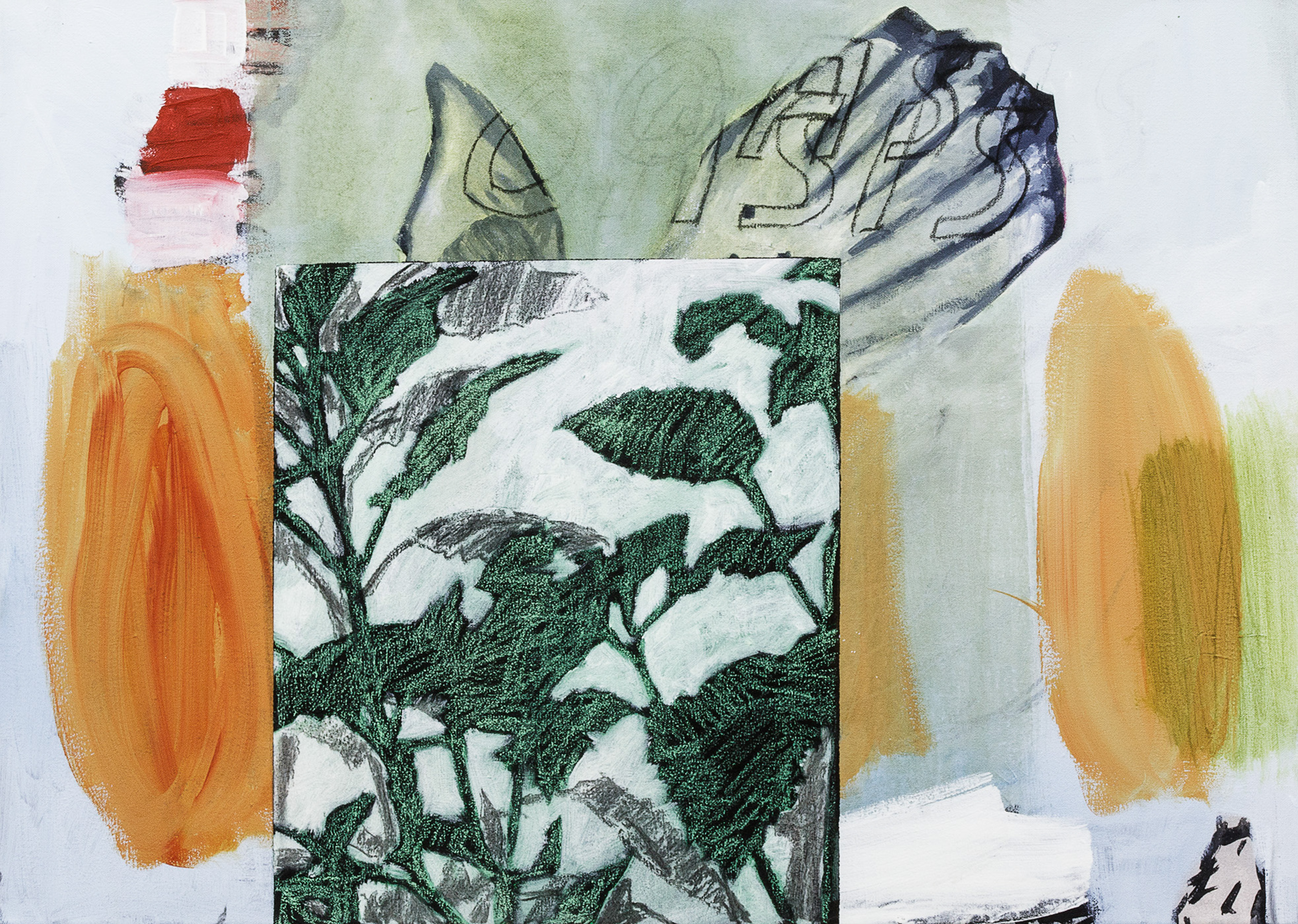

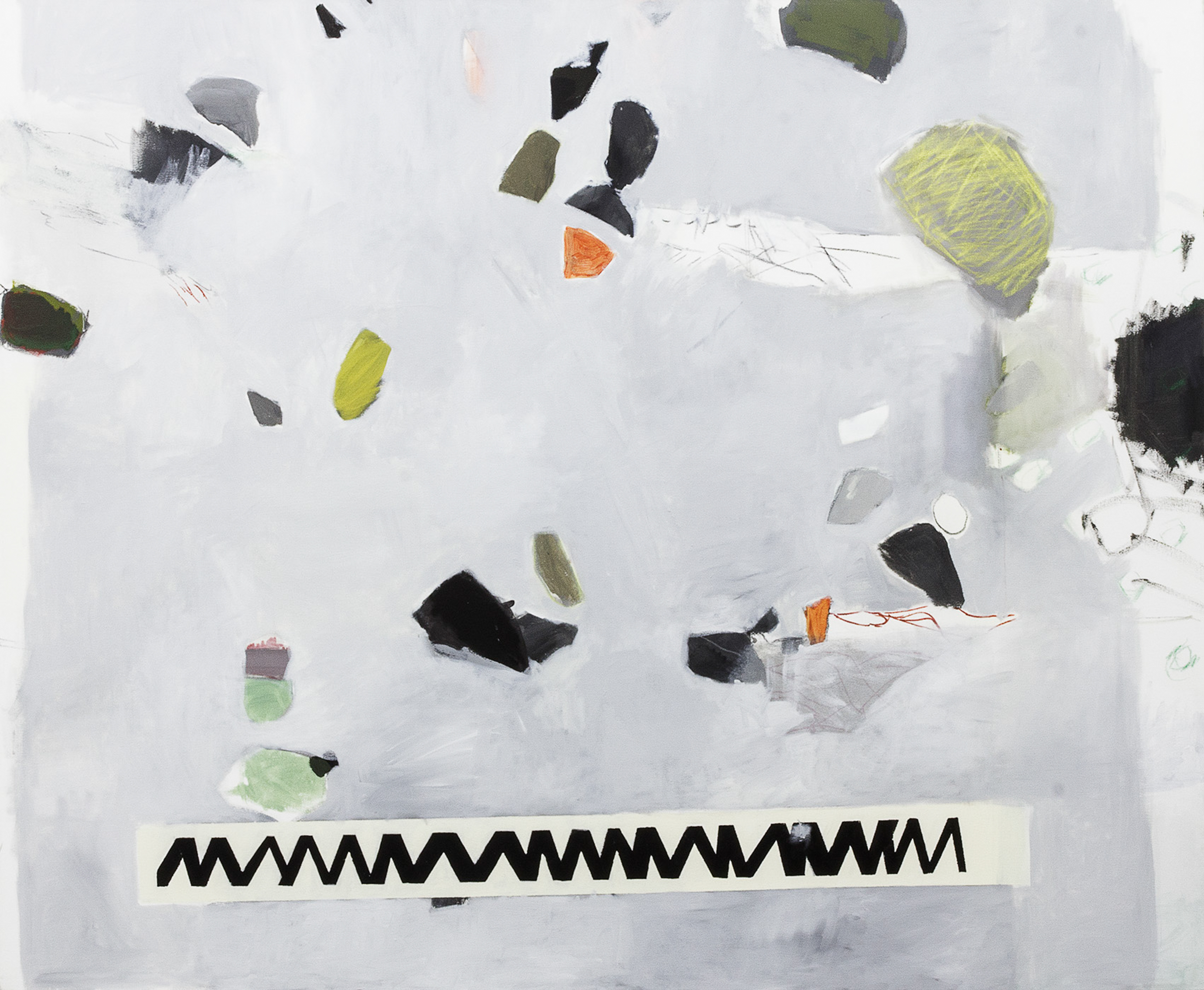
A series of paintings by Dorothee Kreutzfeldt
with contributions by Pamella Dlungwana and Ashley Walters
Situation 1: The room you are assigned is large. It has an interleading door and a main door. The furniture is plain and ordered along the longer wall. People come and go. There are many other rooms attached to this one, or it seems to be connected to other rooms in a significant way. It takes you a long time to find your way back to the entrance, which you recognise because of the portraits (like ancient brothers). The entrance does not allow a view into the interior. Reverse.
I imagine the reverse movement to be very slow, as if to extend and alter ‘Situation 1’, which is based on an existing building presently in use. Movements in reverse can be awkard, illogical actions, interesting to watch. They could be seen as a defensive, pathetic approach towards the present moment, as if moving with the back towards the observer, testing the degree of preparedness and a desire for the present to remain intact, to prolong. Of course the present cannot be in reverse mode; images and paintings however lend themselves easily towards the reverse (mirror image, blank reverse, the beginning of an image…). In film, the demolished wall magically rebuilds itself, a very simple ‘act’. (The reverse also defines a football tactic -‘a play on offense in which one back running laterally hands the ball to another back who is running in the opposite direction and who then makes either an end run or a cutback.’).
The set of paintings and their motifs – pre-cast cement eagle, carpet, trees etc. – propose a scenario or situation ‘at present’. Each work refers to a specific experience, a space, found film still or constructed photograph. The same motif re-appears in some paintings; a kind of self-repeat, or one that reverses/anticipates another image.
Photographer Ashley Walters and writer/cultural practitioner Pamella Dlungwana have contributed their own texts to the exhibition, which present additional situations in themselves.
—
Dorothee Kreutzfeldt (b1970) lives and works in Johannesburg where she lectures at the Wits School of Arts. Her practice involves painting and collaborations, often across different media and disciplines and with a strong interest in urban space and it’s contradictions, ironies and socio-political complexities. In 2013, Kreutzfeldt published ‘Not No Place. Johannesburg – Fragments of Spaces and Times’ in collaboration with Bettina Malcomess, a five-year book project that extended into workshops, conferences, presentations and exhibitions in different forms at Wits Institute for Social and Economic Research, La Maison Rouge Paris, Kunsthalle im Lipsiusbau Dresden, Goethe on Main Johannesburg and ISA Congress of Sociology Yokohama. She has participated in numerous exhibitions and residences, both nationally and internationally, since 1996. Her work is represented in a number of private and public collections, including the South African National Gallery and Johannesburg Art Gallery. Kreutzfeldt’s last solo exhibition, ‘The Imminent Inauguration of the 5th Corner’, was held at blank projects in 2010.
Ashley Walters (b1983) works mainly in photography and video. Based in Cape Town where he was born, he completed his Master of Fine Arts in 2013 at the Michaelis School of Fine Art and received the Tierney Fellowship in 2013/14. Walter’s photographic practice presents a subjective and critical approach to the complex behaviors and processes of urban life in Cape Town and its peripheries. His latest exhibition, ‘Uitsig’, explores notions of ‘community’ as lived, spatial and social construct, in which photography is approached as a participatory process.
Pamella Dlungwana is a Cape Town-based poet, writer, researcher and currently the regional coordinator of VANSA in the Western Cape. As coordinator/contributor she has worked with several publications and institutions including Chimurenga Magazine and The Chinua Achebe Centre. As poet and writer Dlungwana has collaborated with artists and performers, including Bandile Gumbi (‘No holy cows’), Francis Burger (‘Unlearning, names not signs not names’), Zanele Muholi (‘What do you see when you look at us?’), Molemo Moiloa and Nare Mokghoto (‘Corner Loving’).
with contributions by Pamella Dlungwana and Ashley Walters
Situation 1: The room you are assigned is large. It has an interleading door and a main door. The furniture is plain and ordered along the longer wall. People come and go. There are many other rooms attached to this one, or it seems to be connected to other rooms in a significant way. It takes you a long time to find your way back to the entrance, which you recognise because of the portraits (like ancient brothers). The entrance does not allow a view into the interior. Reverse.
I imagine the reverse movement to be very slow, as if to extend and alter ‘Situation 1’, which is based on an existing building presently in use. Movements in reverse can be awkard, illogical actions, interesting to watch. They could be seen as a defensive, pathetic approach towards the present moment, as if moving with the back towards the observer, testing the degree of preparedness and a desire for the present to remain intact, to prolong. Of course the present cannot be in reverse mode; images and paintings however lend themselves easily towards the reverse (mirror image, blank reverse, the beginning of an image…). In film, the demolished wall magically rebuilds itself, a very simple ‘act’. (The reverse also defines a football tactic -‘a play on offense in which one back running laterally hands the ball to another back who is running in the opposite direction and who then makes either an end run or a cutback.’).
The set of paintings and their motifs – pre-cast cement eagle, carpet, trees etc. – propose a scenario or situation ‘at present’. Each work refers to a specific experience, a space, found film still or constructed photograph. The same motif re-appears in some paintings; a kind of self-repeat, or one that reverses/anticipates another image.
Photographer Ashley Walters and writer/cultural practitioner Pamella Dlungwana have contributed their own texts to the exhibition, which present additional situations in themselves.
—
Dorothee Kreutzfeldt (b1970) lives and works in Johannesburg where she lectures at the Wits School of Arts. Her practice involves painting and collaborations, often across different media and disciplines and with a strong interest in urban space and it’s contradictions, ironies and socio-political complexities. In 2013, Kreutzfeldt published ‘Not No Place. Johannesburg – Fragments of Spaces and Times’ in collaboration with Bettina Malcomess, a five-year book project that extended into workshops, conferences, presentations and exhibitions in different forms at Wits Institute for Social and Economic Research, La Maison Rouge Paris, Kunsthalle im Lipsiusbau Dresden, Goethe on Main Johannesburg and ISA Congress of Sociology Yokohama. She has participated in numerous exhibitions and residences, both nationally and internationally, since 1996. Her work is represented in a number of private and public collections, including the South African National Gallery and Johannesburg Art Gallery. Kreutzfeldt’s last solo exhibition, ‘The Imminent Inauguration of the 5th Corner’, was held at blank projects in 2010.
Ashley Walters (b1983) works mainly in photography and video. Based in Cape Town where he was born, he completed his Master of Fine Arts in 2013 at the Michaelis School of Fine Art and received the Tierney Fellowship in 2013/14. Walter’s photographic practice presents a subjective and critical approach to the complex behaviors and processes of urban life in Cape Town and its peripheries. His latest exhibition, ‘Uitsig’, explores notions of ‘community’ as lived, spatial and social construct, in which photography is approached as a participatory process.
Pamella Dlungwana is a Cape Town-based poet, writer, researcher and currently the regional coordinator of VANSA in the Western Cape. As coordinator/contributor she has worked with several publications and institutions including Chimurenga Magazine and The Chinua Achebe Centre. As poet and writer Dlungwana has collaborated with artists and performers, including Bandile Gumbi (‘No holy cows’), Francis Burger (‘Unlearning, names not signs not names’), Zanele Muholi (‘What do you see when you look at us?’), Molemo Moiloa and Nare Mokghoto (‘Corner Loving’).